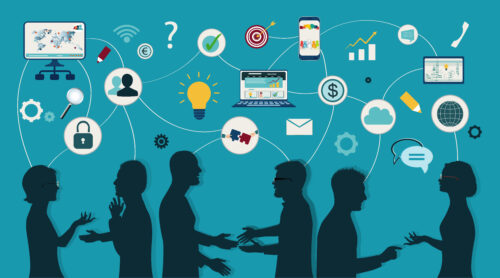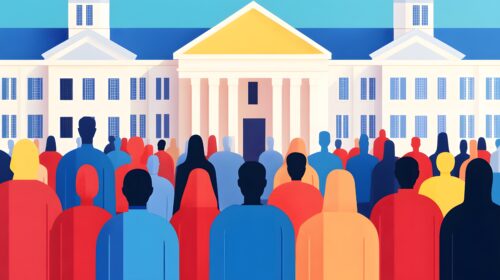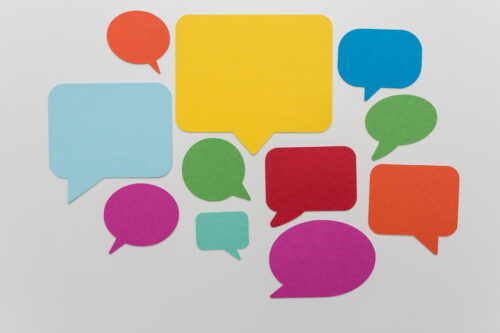In 2024, over 60 countries held national elections, making it one of the largest election years in history. These events coincided with the rapid advancement and adoption of artificial intelligence (AI), causing public concern over how these technologies might impact global elections. In May, we asked experts to weigh in on potential threats, such as misinformation and deepfakes, voting behavior, and vulnerabilities in our election infrastructure. With the end of the year approaching, the Allen Lab asked Danielle Allen, Nate Persily, and Bruce Schneier to revisit their predictions and reflect on the role of AI across the 2024 elections.
Despite early public concerns about AI dramatically disrupting this year’s elections, the panelists agreed that most of those fears were not realized, while a more nuanced reality emerges — AI is permeating all aspects of elections, from campaign operations to the information ecosystem. As Persily noted, AI amplifies the abilities of both good and bad actors to achieve the same goals they’ve always had in elections.
Reflecting on this Election Cycle
During the event, panelists noted that several platforms took proactive measures this election cycle to address election related concerns. Anthropic and OpenAI both redirected political queries to authoritative sources, such as the Associated Press or CanIVote.org. Social media platforms continued to develop and deploy their own AI-driven countermeasures to identify and tackle coordinated inauthentic behavior. Persily highlighted a few interesting behaviors to emerge with the use of AI-generated content. For example, most AI-generated images with viral spread were largely satirical and built upon existing narratives. Notably, multiple politicians took to discrediting unflattering (but true) events as being “AI-generated.”
The Potential of AI in Political Systems
Schneier noted AI’s unique election-related capabilities revolve around the speed, scale, and scope of these systems. AI has been used in various aspects in elections: communications, polling, political organizing, democratizing access to political participation, fundraising, and strategy. AI has improved communications through live translation, such as in the New York Mayoral race, and voter outreach through the use of AI, such as the AI candidate in the Tokyo Governor race. Campaign operations and political organizing are leveraging AI for voter outreach and helping campaigns scale their communication efforts with services like Votivate, which use AI-generated voices for get-out-the-vote calls. AI may also be able to help potential candidates navigate the complexities of running for office, especially in local races where resources are often limited.
However, as Allen noted, while AI will inevitably become as ubiquitous as electricity, we must remain mindful of how its aggregate effects might fundamentally alter political dynamics in ways we can’t yet predict.
Areas for Future Research
As the relationship between trust and technology continues to evolve, the panelists highlighted a few areas for further research and investigation:
- Advance methods of disclosure to ensure that we know when we are interacting with a computer or another person. Current watermarking methods may not be a robust enough solution, and won’t necessarily solve the disinformation problem.
- With only a few companies leading the world of AI today, further examine the relationship between AI and the concentration of power. The Allen Lab’s recent work on the Political Economy of AI is focused on this dynamic.
- Explore the balance between open-source and closed-source models, and the implications for democratizing access to these tools while managing associated risks.
As Schneier noted, democracy is about more than just an outcome – it’s about the human process behind reaching that outcome, which AI should enhance rather than replace.
Watch the full event:
Sarah Hubbard, former Technology & Public Purpose Fellow at the Belfer Center under Secretary Ash Carter, is the Associate Director for Technology & Democracy at the Ash Center’s Allen Lab for Democracy Renovation.
The views expressed in this article are those of the author alone and do not necessarily represent the positions of the Ash Center or its affiliates.







